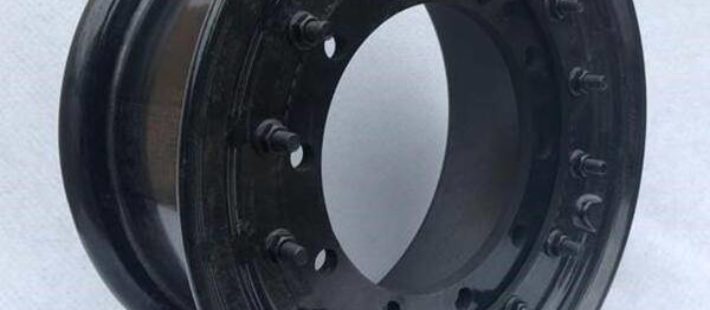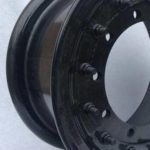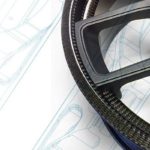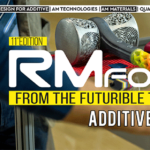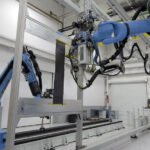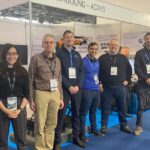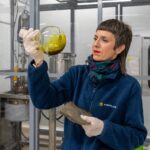Carbon ThreeSixty, the advanced composite structure specialist, is leading a new project co-funded by Innovate UK, the UK’s innovation agency, to develop a revolutionary all-composite helicopter wheel. The new NATEP project has the aim to design, develop and manufacture an ultra-low mass, robust, proof-of-concept carbon-fiber-reinforced plastic (CFRP) wheel for rotary-wing aircraft.
Carbon ThreeSixty, Leonardo, and the National Composites Centre have joined forces and combined their own skills to realize this project in 18 months.
Traditional wheels
The current global market for helicopter wheels uses metallic light-alloy materials, usually aluminium or magnesium. This kind of materials offers sufficient strength and stiffness from a relatively low density.
Existing light metal alloy helicopter wheels can suffer from undesirable fatigue failures and have to endure relatively harsh environments. This requires regular preventative and corrective maintenance throughout the life of the aircraft.
Revolutionary wheels
A wheel made of CFRP will offer significantly enhanced mechanical properties at approximately half the density of metallic wheels. It will be lighter because it can offer weight savings of around 30-40% over forged aluminium. A CFRP wheel alsopresents higher performance (in terms of noise, vibration and harshness) with extended working life.
This is possible thanks to its fibrous microstructure and resin stability of the advanced composites used. The structure allows resisting better to fatigue and corrosion if the wheel is optimally designed.
The project will use cutting edge composite manufacturing technology such as tailored fibre placement (TFP), braiding and out-of-autoclave processes to ensure repeatability and scalability while utilising novel product and process design to enable the partners to protect IP required to successfully manufacture the products.
Benefits in aircraft
Ed Allnutt, Managing Director of Carbon ThreeSixty:
“The application of advanced composite materials and processes specifically to aerospace wheels is a highly innovative step. Our experience with other composite wheel applications has shown that weight savings of 30 to 40% are achievable over forged aluminium solutions. We believe the key selling point, however, will be the improvements in fatigue life and failure mode which will extend the life and improve safety.”
 |
SUBSCRIBE NOW
|


